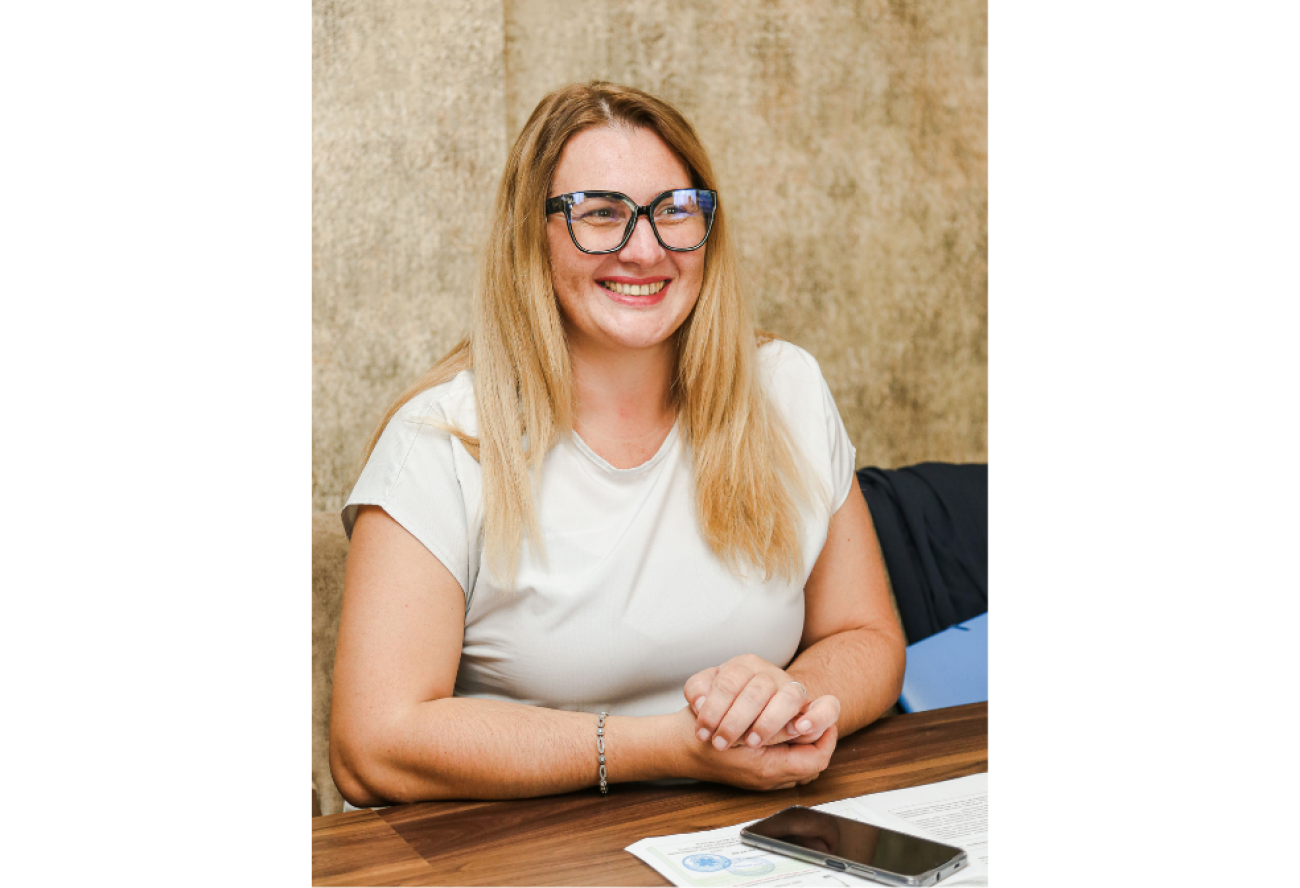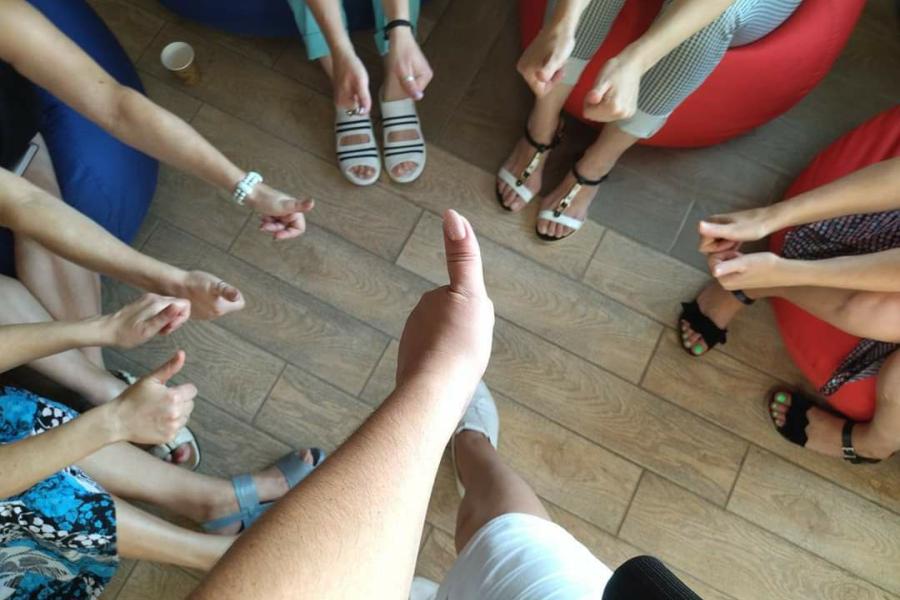Fighting stereotypes and a secret chat for women living with HIV in the Kherson region. Conversation with Natalia Tiuniahina.

Natalia Tiuniahina - Regional Coordinator of the Charitable Organization “Positive Women” and the founder of the Public Organization “Positive Women Kherson"
I came to the Charitable Organization “Positive Women” thanks to the previous coordinator. She has participated extensively in the creation of self-help groups. I assisted her in their organization, and she saw that women know me and trust me, and trust is the main quality necessary for our work.
For almost a year, we collaborated with the UN Women Project “Advancing Gender Equality and Women’s Empowerment through Decentralization Reform of Ukraine”
At the same time, I studied at the Academy of Public Activism. The result of UN Women trainings and work with professional mentors was that, together with initiative women from self-help groups, I created a separate Public Organization “Positive Women Kherson”, which will provide targeted assistance to women in our region.
Our organization supports women living with HIV, those who have experienced domestic violence or face various forms of discrimination.
Our activity is aimed at acceptance of one’s HIV status, overcoming self-stigma, restoring lost skills, resocialization, awareness of our rights as women living with HIV, as well as promoting personality harmonization in all spheres of life. We work with lawyers who provide free legal aid and of course we have self-help groups for women.
A self-help group is a space where women can talk about their feelings and experiences, find support in solving problems. But the most important thing is open communication, new acquaintances and exchange of life stories.
We are also working hard to break down stereotypes about people living with HIV. We invited people from different fields and organized a film screening and discussion. The film was about a woman with HIV who became pregnant and was fighting for her rights. This film showed the way of a woman who learned about her status during pregnancy and what steps she should take to receive therapy and give birth to a healthy baby. Women often find out about their HIV status only when registering for a pregnancy. For many invited guests, this event became a motivation for testing.
We often encounter the prejudice that people with HIV are necessarily drug addicts or marginalized groups. I do not want participate in discussion and argue. I just invite people to take part in our events and debunk these myths.

After our events, we are visited by women and men who have been married for a long time, but have never been tested for HIV; they take tests for themselves and their partners. I believe that this should be a perfectly normal practice in our society.
Most women join our organization because they experience domestic violence. Violence is often triggered by identifying their HIV status or the status they have acquired as a result of the violence. Of course, women are looking not only for moral support, but also for compassionate doctors, but there are not many of them. This is an internal stigma that prevents a woman from disclosing her status to a gynecologist or any other doctor when prescribing treatment, because some drugs are incompatible with antiretroviral therapy (ART).
It is important to work with doctors and health workers. For example, talk about how to empathize with care and respect your patients’ privacy. Therefore, it is extremely important for women living with HIV to have contacts with friendly doctors who will not treat them with contempt or caution. These are, in my opinion, the basic rights of women. I am glad that we now have friendly infectious disease specialists, gynecologists and pediatricians who can be contacted at any time. Yet they are not enough to cover all women.
During the COVID-19 pandemic, violence against women increased as they were left alone with their abusers. Women from villages and remote settlements began to contact us more often. Because of the pandemic, many men lose their jobs, and this affects both the psychological and the emotional state.
To keep abreast of this issue, we are working with the City Crisis Center for Domestic Violence Victims.
One of the latest cases - a doctor from the AIDS center contacted us and said that this is not the first time one of his patients comes to an appointment with bruises. During one of her visits, the woman admitted that she had suffered from violence from her boyfriend and needed help. Upon learning that she had HIV, her boyfriend accused her of treason, although he himself refused to be tested. When the woman tried to get away from him, he beat her and chased after her. When she ran away, he threatened to tell everyone about her illness. We call this the standard set of abusers. Together with the Crisis Center, we managed to consult this woman, provide her with psychological and legal support. She was able to get out of the circle of violence, rent a separate home and, in case of danger, knows the algorithm of her actions. We have many such situations. We add all the girls to our secret chat, where they can get to know each other, share life experiences, get advice or recommendations on various issues. This is a kind of safe online space where women feel supported and trust each other.
We are very lucky. Women’s public organizations in the Kherson region are friendly and have no competition with each other. We also have mobile police brigades; they act as a united front in solving the problem and do not leave victims of violence in a difficult situation.
My biggest inner need is to help women accept their status, to teach them to live a full life with HIV, to open them in a new better way, to show that they can do everything and even more. Teach them to be active, motivated and successful no matter what.
The material was prepared within the framework of UN Women Project “Advancing Gender Equality and Women’s Empowerment through Decentralization Reform of Ukraine” funded by Global Affairs of Canada.



